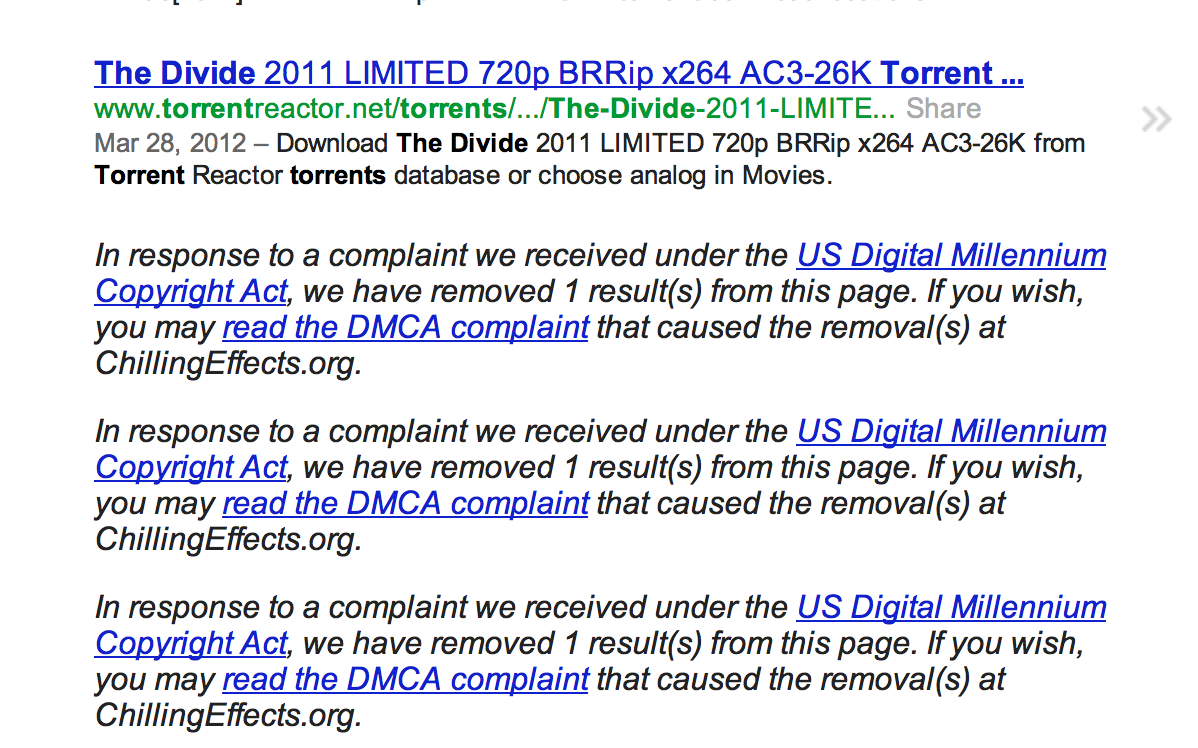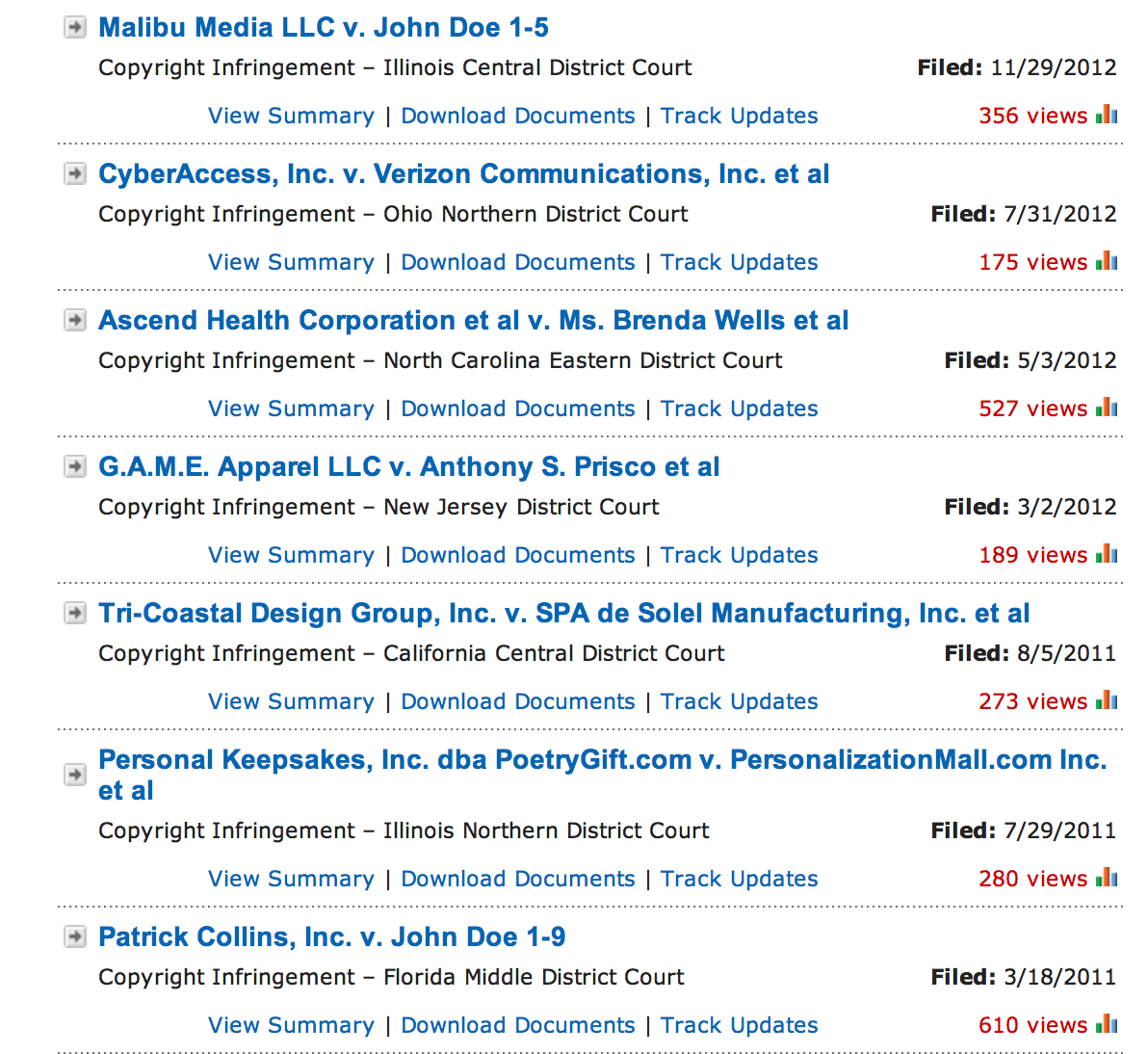Paul (not his real name) has never seen the movie The Divide. He’s a horror buff and sometimes tries to find odd and decidedly bad flicks to watch with his wife. The Divide would have fit the bill. It made $16,700 at the box office – that amounts to about 2,100 tickets sold – and closed with $130,839 in the bank. It cost $3 million to make.
The reviews, not surprisingly, were uniformly bad. “Well, yes. I’m another person who got suckered into watching this piece of garbage. The most important thing you need to know about this movie is that it’s just not worth spending two hours of your life to watch it. It’s just bad,” wrote one IMDb user.
“The characters are so cliché and the dialogue is so poorly written that any self-respecting horror lover would quickly roll their eyes, eject the DVD and watch The Mist on cable before falling asleep in his or her clothes,” wrote another. It’s one of those movies for a very specific audience. For guys like Paul.
Paul also admits to occasionally torrenting hard-to-find films. But he’s never seen The Divide. He never downloaded it. I believe him.
However, a month ago, Paul got a letter from his ISP accusing him of torrenting a copy of the file at midnight one lazy evening. His ISP informed him that his IP address, an identifier that, in truth, constantly changes for most Internet users, was identified as being part of the download. Because of this, he’s being sued.
Paul is now in the strange world of copyright trolls, companies that produce or license content for the sole purpose of suing users who pirate it – even inadvertently.
How did Paul get caught? And what is his recourse now that he’s been fingered as a pirate? The answers to those questions are mired in some of the most contentious legal wrangling ever and is the basis of an entire industry, one dedicated to producing Internet-based “bait cars” that allow copyright holders to see a trickle of money for even the arguably worst content imaginable.
 First, a brief primer on BitTorrent. When a file, a document, say, is put on BitTorrent, a user makes it available as a seed. This seed is downloaded a few times by other users – peers – and then, once enough copies are available, the peers begin serving up parts of that file. Think of it as a group of people sharing a candle. The first person lights another person’s candle and so on. Eventually, the holder of the original flame is forgotten and the flame is self-perpetuating. While this metaphor isn’t completely accurate, it works well enough.
First, a brief primer on BitTorrent. When a file, a document, say, is put on BitTorrent, a user makes it available as a seed. This seed is downloaded a few times by other users – peers – and then, once enough copies are available, the peers begin serving up parts of that file. Think of it as a group of people sharing a candle. The first person lights another person’s candle and so on. Eventually, the holder of the original flame is forgotten and the flame is self-perpetuating. While this metaphor isn’t completely accurate, it works well enough.
According to Paul’s ISP, then, Paul’s computer held the flame for a brief period, serving up all or some of The Divide to other users. Whether this is true or not is the biggest problem in this sort of copyright law. If Paul served up a packet inadvertently, is it his fault? If he only served up one packet versus the entire file, is he at fault? And how can ISPs prove beyond a doubt that Paul is the culprit here? They can’t.
The DMCA complaint Paul received came from R&D Film 1, LCC, represented by attorneys Michael Heirl and Todd Pankhurst of Hughes Socol Piers Resnick & Dym, Ltd. in Chicago. The complaint cited him by IP address and cited this file, a 720p Blu-Ray rip release by BHRG. In the case of The Pirate Bay, the file was seeded by a user called maximersk, who has seeded a number of videos and television programs from various “groups.”
It is important to note that The Divide is still available for download.

Files produced by various groups – in this case BHRG – differ in quality and availability. There are many versions of The Divide, including higher- and lower-resolution copies.
But only this copy is seeing lawsuits thrown at it. If the lawsuit defendants had picked another copy, any other copy, they would have been in the clear. Clearly this particular 720p, high-resolution copy of The Divide is being watched. Every time someone shared a little bit of it, chances are one of the seeders “caught” the IP address of the requester. The seeder made a list, forwarded that list to the appropriate ISPs, and then prepared their case. The IP addresses are sent with a timestamp (which could be wrong) and, as we all know, IP addresses are ephemeral things. Again, Paul was no angel, but he got caught in a dragnet that had little to do with him.
“If entrapment wasn’t done by government entities this would be entrapment,” said Robert Z. Cashman, a patent attorney who runs a website dedicated to researching copyright trolls.
 Ross Dinerstein, the R and the D in R&D, is an indie film producer and a nice guy. You can see him chatting about a movie called The Pact here. He lives in Los Angeles and has the round, boyish face of a Hollywood business man focused more on doing deals than going gluten-free. He was executive producer for Jiro Dreams of Sushi, a beautiful piece of indie documentary filmmaking that could be considered a masterpiece. I spoke to him and he laid out his case.
Ross Dinerstein, the R and the D in R&D, is an indie film producer and a nice guy. You can see him chatting about a movie called The Pact here. He lives in Los Angeles and has the round, boyish face of a Hollywood business man focused more on doing deals than going gluten-free. He was executive producer for Jiro Dreams of Sushi, a beautiful piece of indie documentary filmmaking that could be considered a masterpiece. I spoke to him and he laid out his case.
“I’m a producer. I don’t have the bandwidth to chase pirates, so I hired a specialist to handle it,” he said. “As far as I know, [the people being sued] get trapped by stealing copyrighted material which is not a good idea.”
It’s hard to dump the blame on Dinerstein or anyone like him. While he does see a small amount of money from these lawsuits, he has essentially outsourced their enforcement to a company called GuardaLey, a firm that rose to infamy for offering software products and anti-piracy services whose “evidence gathering techniques are far from optimal.” Attorney Jason Sweet told TorrentFreak:
GuardaLey did not respond to requests for an interview, and R&D Film 1 LLC’s counsel at Hughes Socol Piers Resnick & Dym, Ltd. said “No comment.”
Disconnecting Dinerstein from GuardaLey is obviously problematic, but let’s assume, for the sake of sanity, that the movie was made in good faith and that his goal was to show people a good time. Who, then, is at fault? Dinerstein for wanting what is, by all rights, his? Or GuardaLay for essentially expressing a level of incompetence that would get most software services houses fired?
Lawsuits like this one started cropping up in 2010 and have risen in intensity since. Pop over here and search for copyright cases with the party name “Doe 1-” in any court. You’ll see quite a few cases, many of them dealing with exactly this type of situation.

Remember that it doesn’t have to be this way. The easiest way to have something removed from the Internet is through a simple DMCA filing. Takedown notices like this one to Google are addressed almost immediately, which is often a boon for copyright holders, but is also a club for those wishing to hide information, as was evidenced in a case against a WordPress user whose plagiarist requested a takedown notice for blog posts they had copied.
There is obviously little monetary value in these notices, but they do remove offending content, for the most part, in a few keystrokes. It’s a method of first resort and makes the most sense for copyright holders.
GuardaLey has a stable of law firms that send out these letters in hopes that customers will settle. If they don’t – if the cases go to court or they are ignored – they stand to lose money. The sweet spot, then, is in those too cowed not to react and too confused to find legal representation.
“My folks just got served a subpoena,” wrote the relative of one of the victims. “They are elderly and I know did nothing wrong; possibly someone else using their IP address. I’m thinking either hiring an attorney as a shield, or doing nothing and praying it goes away. I will not have them appear in court or settle. What do you suggest?”
Others, like a 16-year-old defendant, are worried the lawsuit will ruin their family. Still others see it as a scam.
One user received a subpoena after watching a Mr. Rogers episode online. “There is no reason for them to come after me, my kids, or any of the other thousand viewers, unless stopping ‘piracy’ for copyright trolls is not their real intent.”
Copyright trolling efforts like these are not new. Cashman has been following them for years.
“Copyright trolls are generally production studios and/or they’re enterprising attorneys who have decided that it is more profitable for them to sue defendants and elicit multi-thousand-dollar settlements from accused defendants rather than sell tickets or copies of their copyrighted films at retail or discount prices,” he said. “A porn production company could make millions suing defendants rather than promoting $20 per-month memberships at their websites. For these reasons, these lawsuits in their post-Napster, post-Grokster form took shape.”
But what right do these trolls have to ask for outrageous sums? In copyright law there is a duality. On one hand, you can say that the studio is out one paying customer – $20 at most for the ticket and a few bucks more for popcorn. On the other, you can say that the downloader has, inadvertently, become a pirate distributor. That’s partially why it’s easy for these guys to go after BitTorrent users (that and the ubiquity of the service.)
“Their filings for copyright infringement are probably correct — if a downloader made an unauthorized copy of a copyrighted file, they could probably be held liable for copyright infringement. I am hedging on this statement because I would like to see the laws limited to those who enjoy a financial gain from this infringement, and I do not consider the ‘loss of a movie ticket or sale’ to be substantial enough to sue a defendant for $150,000,” said Cashman.
So somehow Paul’s IP address got on R&D/GuardaLey’s list. They sent a letter to the ISP asking for the specific data pertaining to the accused user, and the ISP, thanks to the DMCA, is forced to comply. In fact, companies will cry “The DMCA made me do it” at the drop of a hat these days, another issue that frustrates content producers to no end.
So what now?
 “Don’t be fooled — these trolls can be fought using the same arguments as any of the others. An IP address still does not conclusively link to the subscriber as the downloader,” said Cashman.
“Don’t be fooled — these trolls can be fought using the same arguments as any of the others. An IP address still does not conclusively link to the subscriber as the downloader,” said Cashman.
“Each of these cases suffered from the same issues which would prevent them from going to trial — lack of personal jurisdiction, improper joinder of accused defendants, and that there were clear patterns in the rulings of the judges across the U.S. where they were clearly misunderstanding what was the real intention of these copyright trolls, and they were denying motions to quash and attempts of the internet users to prevent the copyright trolls from obtaining their contact information,” he said.
Jeffrey Antonelli, an anti-troll lawyer, told us that before those attacked do anything they should confirm that their computers are compromised or that a relative hasn’t been visiting The Pirate Bay without their knowledge.
Then you have to gamble. Do you hire a lawyer and forge ahead or ignore the notice?
“I have represented a number of people who were sued because they ignored the letters. It’s about trying to determine that chance, it’s difficult, and it would be helpful to have legal advice. You can be well-informed by reading the relevant sources. Copyright Trolls and Die, Troll, Die are both good sources and both are being sued by some copyright trolls,” he said.
Again, is this Dinerstein’s fault? No, said Antonelli. “Starting from the presumption that copyright owners – bona fide business owners that are providing content. With those assumptions, I don’t think it’s necessarily bad. I do have issues with the manner in which those people are doing their investigations/litigation and with the selection of people they actually decide to sue.”
Antonelli said Paul is looking at a claim of about $500-$750.
“Other law firms charge more, my firm is able to charge less. Litigation is quite a bit more expensive. Litigation can easily be up to $5,000-$6,000 and can quickly escalate to $50,000 if you’re the main defendant. It’s very burdensome. There should be strict rules on the ability to enforce copyrights through ISP subpoenas.”
In the end, copyright trolling is a sneak attack on folks who may or may not be doing anything wrong. While certainly The Divide is a piece of intellectual property that deserves protection, things break down when it is used as bait to gather lucrative lawsuits. Entire film studios produce second-rate movies to, presumably, show on Netflix and other services and, sadly, use to power these lawsuits. While perhaps the The Divide isn’t such a movie, the chances look good.
 It appears to me as if these movie studios have been making second-rate movies for some time, more as a hobby as far as I’m concerned. Setting up a holding company and transferring the copyright to the holding company so that they could sue for copyright infringement appears to be a ‘business model’ of what is known as ‘IP monetization’ that lawyers are so excited about.
It appears to me as if these movie studios have been making second-rate movies for some time, more as a hobby as far as I’m concerned. Setting up a holding company and transferring the copyright to the holding company so that they could sue for copyright infringement appears to be a ‘business model’ of what is known as ‘IP monetization’ that lawyers are so excited about.
“In other words, they say: ‘It’s a bad economy, so let’s threaten to, but not sue the pants off of anyone who downloads our content,’” he said.
Sadly, for folks like Paul, sometimes that strategy works.
With reporting by Michael Seo
[Illustration: Bryce Durbin]






























Comment